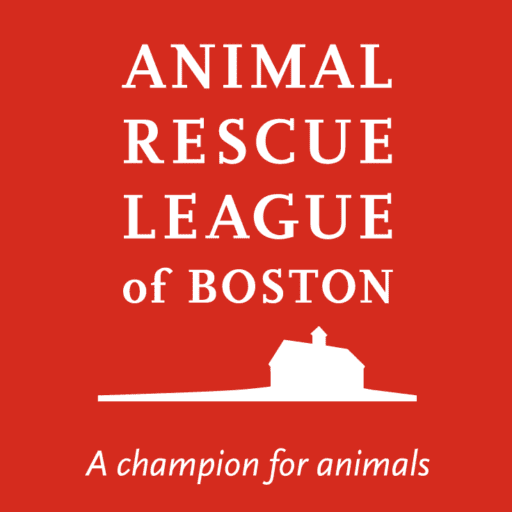Happening Now: The ARL Joins Coalition to Improve the Protection and Treatment of Farm Animals
The Citizens for Farm Animal Protection advocates for an end to extreme confinement of farm animals in Massachusetts
The Animal Rescue League of Boston (ARL) and other national and local animal welfare leaders have gathered on the front steps of the Massachusetts State House to formally announce their newly developed coalition, Citizens for Farm Animal Protection, and ballot initiative to curb animal abuse on industrial-style factory farms in Massachusetts.
The coalition aims to collect more than 90,000 signatures by Fall 2015 to help secure a spot on the 2016 ballot.
Mary Nee, president of the Animal Rescue League of Boston, explains why the ARL is in support of this ballot initiative: “The cruel confinement of farm animals is inhumane and also threatens the health and safety of Massachusetts residents through increased risk of foodborne illness. When there’s an effort to improve the protection and treatment of animals – whether they are companion, working, or farm animals – the Animal Rescue League of Boston is there to help.”
The Citizens for Farm Animal Protection coalition also includes the Humane Society of the United States (HSUS), the Massachusetts Society for the Prevention of Cruelty to Animals, the American Society for the Prevention of Cruelty to Animals, Zoo New England, and United Farm Workers.

In many industrial animal farms, hens are forced into battery cages so small that they cannot spread their wings. Their amount of “personal space” is smaller than an iPad!
The Citizens for Farm Animal Protection’s goal is to qualify a measure for the 2016 ballot phasing out the extreme confinement of farm animals — specificallyegg-laying hens, breeding pigs, and veal calves — in small crates and cages, requiring that these animals have enough room to turn around, lay down, and stretch their limbs.
Examples of extreme confinement on industrial-style factory farms include:
- Egg-laying hens packed into battery cages so small that they cannot spread their wings
- Breeding female pigs restricted to two-foot wide gestational crates that don’t allow them to take more than one step forward or backward
- Veal calves restrained in crates too narrow to turn around or fully recline
Industrial animal operations put our health at risk: cramming tens of thousands of animals into tiny cages promotes the spread of diseases.
Numerous studies show that egg operations that confine hens in cages have higher rates of Salmonella, the leading cause of food poisoning-related death in America. Animals kept in extreme confinement often live in their own waste and are pumped full of drugs that can taint the food we eat.
If the 2016 ballot becomes law, it will also ensure that shell eggs, and whole, uncooked cuts of pork and veal sold in the Commonwealth are compliant with these modest standards
Ten states in the US have passed similar laws, and farmers in Massachusetts are already required to abide by the non-confinement regulations. Additionally, many local and major food retailers, including Dunkin Donuts, McDonald’s and Walmart, are currently working with food suppliers to make similar reforms.
Help protect farm animals! Look out for and sign the petition that will help secure the 2016 ballot to phase out extreme confinement on industrial-style factory farms.

